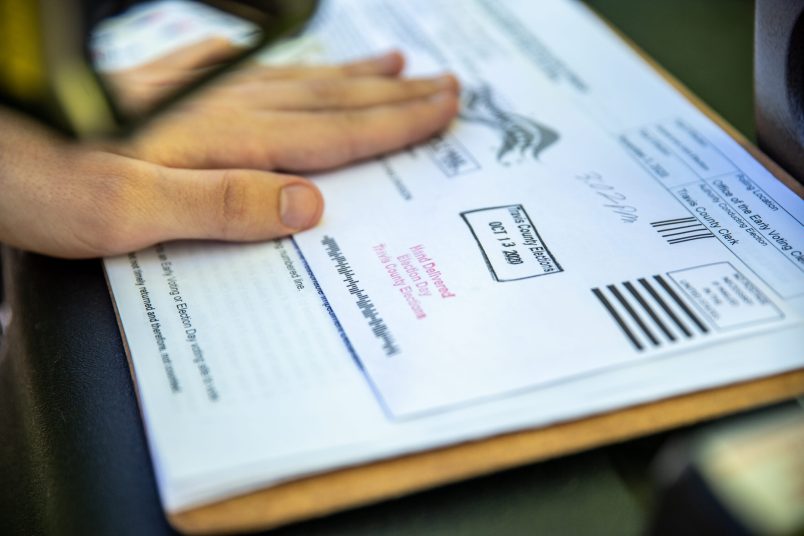Texas’ largest county has rejected thousands of absentee ballots and ballot applications due to Republicans’ restrictive new voting law — and now, officials there have asked the Department of Justice for help.
The new law, SB1, is “achieving exactly what its authors set out to do: erect more hurdles in front of the ballot box and systematically suppress the vote in Harris County,” wrote the county judge, county attorney and county elections administrator in a letter to Attorney General Merrick Garland flagged Thursday by Houston Public Media.
Harris County, home to Houston, has for weeks sounded the alarm about early warning signs that SB1 is resulting in unusually large rates of rejected ballot applications.
The trouble comes from Republicans’ new ID requirements for people eligible to vote by mail: The form of that required ID number (whether a driver’s license number, the last four digits of a Social Security number, or state ID number) must match what the voter used to register with the state, sometimes decades earlier. Previously, absentee voters’ identities were confirmed by comparing their signatures to government records.
The results speak for themselves: Out of 33,270 mail ballot applications received by Harris County as of Feb. 15, 14% were flagged for rejection due to SB1’s new voter ID requirements, according to the county officials’ letter. And among 9,809 ballots received by the county by that date, a whopping 35.5%, or 3,491 votes, have been flagged for rejection for the same reason.
Voters can cure these rejections, but it’s unclear how many will be able to do so in time to be counted for Texas’ March 1 primary election.
The letter also flagged the design of ballot envelopes, saying that SB1 is “forcing voters into a game of gotcha by hiding a section of required personal information under the flap of the required voting envelope.”
“Our message today is simple,” the county officials wrote to the attorney general, who is currently overseeing a federal lawsuit against Texas over parts of SB1. “Please exhaust every legal option available to ensure that each eligible voter in Harris County and the State of Texas has their vote counted. No action is too small to preserve our democracy.”










